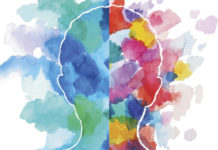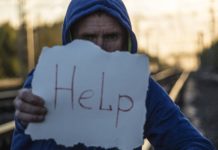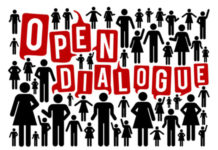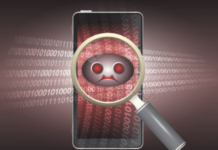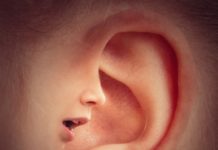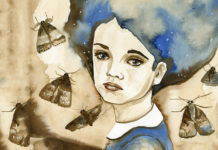Hereditary Madness? The Genain Sisters’ Tragic Story
The story of the Genain quadruplets has long been cited as evidence proving something about the supposed hereditary nature of schizophrenia. But who wouldn’t fall apart after surviving a childhood like theirs? The doctors attributed their problems to menstrual difficulties or excessive masturbation — anything except abuse.
Smartphones, Loneliness, and Depression in Teens
New study finds that smartphone use may precede experiences of loneliness and depressive symptoms among older teens according to longitudinal analysis.
Reforming Schools to Prevent Mental Health Issues
New research explores the use of broad-based school-integrated resiliency and mindfulness interventions to prevent mental health concerns before they occur.
Countervailing Forces Against Ritalin Use in France
A new study in the journal Social Science and Medicine explores why French children take stimulants far less than children in the United States. The study looks at how particular forces in society, in concert with government agencies, became an effective check on stimulant marketing for kids in France.
Clinical Guidelines for Depression Need Urgent Revision
A coalition of 35 health organizations expressed serious concerns that the NICE guideline for adult depression may cause clinical harm—they demand “full and proper” revisions.
Researchers: “Antidepressants Should Not be Used for Adults with Major Depressive Disorder”
A new review, published in BMJ Evidence-Based Medicine, concludes that antidepressants should not be used as the risks outweigh evidence for benefits.
Time’s Up: Culture of Denial Impacts Mental Health of Sexual Abuse Survivors
Study finds that not believing sexual abuse survivors often leads to self-blame and mental health issues.
How Social Dynamics at School Impact Teen Suicide
Teen suicide risk is influenced by relationships with adults and teachers, perceived popularity, close friendships, and school connectedness.
Economic Deprivation and Social Fragmentation Drive Suicide Rates in US
Major study finds that economic deprivation and a lack of social capital are driving increasing rates of suicide in the U.S.
How to Involve Youth in Their Own Mental Health Care
Clinicians play a key role in empowering adolescents and their parents to make decisions about their mental health treatment.
Antidepressant Use Does Not Prevent Suicide, Study Finds
A new study has found that antidepressants are ineffective for reducing suicide attempts. Researchers report that the risk of suicide is particularly high in the first month after starting an antidepressant.
Therapy Gets More Effective Over Time While Antidepressants Decrease in Effectiveness
New review of long-term depression data finds psychotherapy more effective over time whereas antidepressants decrease in effectiveness.
Psychiatrist Describes Role in Open Dialogue Model of Care
Psychiatrist outlines varying roles in Open Dialogue model, fostering service-user and family agency through meaningful conversations with a team of providers.
William James’s Letter to His Depressed Daughter
If you discover that your child has been experiencing a bout with depression, what wise words might you share? Brilliant psychologist William James was forced to address this issue himself when his 13-year-old daughter, Peg, began to struggle with melancholy. I present his long, thoughtful reply for your consideration.
Recovery Is Resiliency
Recovery is not a bridge we cross and never return to. Rather, it is more like crossing a stream we ford by side-stepping on different stones. Not all of the stones are as sturdy as some of the others. Yes, we slip at times, only to regain our footing and forge ahead.
Q&A: My Child Is Self-Harming. How Can I Help?
I walked in on my teenaged daughter cutting her upper leg with a razor. I have also noticed multiple cuts and what look like cigarette burns on her wrists and torso. She’s always made excuses about them, but now I realize she has been self-harming for a while. She swears she isn’t suicidal. What’s this all about, and what can I do?
Monarch eTNS Inspires “Stop the Psychiatric Abuse of Children!” (SPAC!)
The FDA approval of the Monarch eTNS device is the latest form of psychiatric-inspired child abuse. If not stopped, it will afflict millions of children in unimaginably damaging ways. It has inspired us to form Stop the Psychiatric Abuse of Children (SPAC!) a new international advocacy organization.
The Media Scolds Marianne Williamson (And Gets It Wrong)
Journalists have called Marianne Williams’ comments on depression dangerous and irresponsible. A closer look reveals that her “opinions” on mental health treatment are more in line with the science, and that the know-it-all assertions by Cooper and colleagues are belied by it.
Brave New Apps: The Arrival of Surveillance Psychiatry
Large, centralized, digital social networks and data-gathering platforms have come to dominate our economy and our culture. In the domain of mental health, huge pools of data are being used to train algorithms to identify signs of mental illness. I call this practice surveillance psychiatry.
Talking About Psych Diagnoses and Drugs: A Primer for Parents & Professionals
It is important to tell parents the truth about what can and cannot be known about their child. In this way, people come to appreciate that labels and treatments offered by psychiatric professionals are far from being grounded in hard science.
Inside an Online Charter School: Labeling Kids “Disabled” for Profit
I’d thought this teaching job would be my chance to make positive changes in children’s lives. But most of the recommendations in students' IEPs were related not to reading, writing, and ’rithmetic but to behavior control and obedience to adults. And the school seemed to be working very hard to prove that the kids were disabled and to get them certified as such.
Against the Odds: ‘Unimproved Schizophrenic’ to Yale PhD
Forty years after I had first been admitted to the hospital, I was ready to confront my past. So, I sent for my hospital records, and I read them. As an experienced clinician, I recognized immediately what the doctors hadn’t been able to see in 1960: my problem wasn’t ‘schizophrenia’ but PTSD, connected with incest.
A Smashing Victory — And an Insidious New Threat
Afraid of facing me in court, the state gave up entirely and a young man was freed from involuntary ECT treatment. It was a total victory. Meanwhile, the Psychiatric Industrial Complex is finding more subtle ways to inflict electrical energy upon the brains of children labeled with ADHD.
Q&A: How Can I Motivate My “Deadbeat” Teenager?
My 19-year-old son has been diagnosed with ADHD, depression, and ODD. He refuses to go to school or get a job; instead, he just hangs around and plays video games. He has prescriptions but refuses to take them. Frankly, he contributes nothing to the household but stress and is a bad role model for his siblings. How can I make him take his meds and shape up?
The Connection Between Traumatic Brain Injury and Young Adult Suicide Risk
Researchers present evidence of a connection between the experience of traumatic brain injury in childhood and increased risk for suicide attempt in early adulthood.





